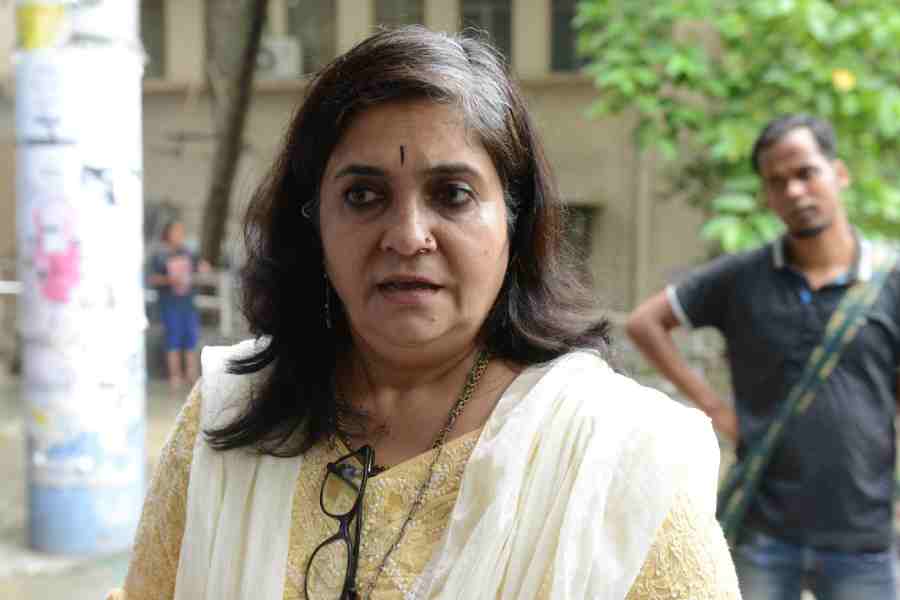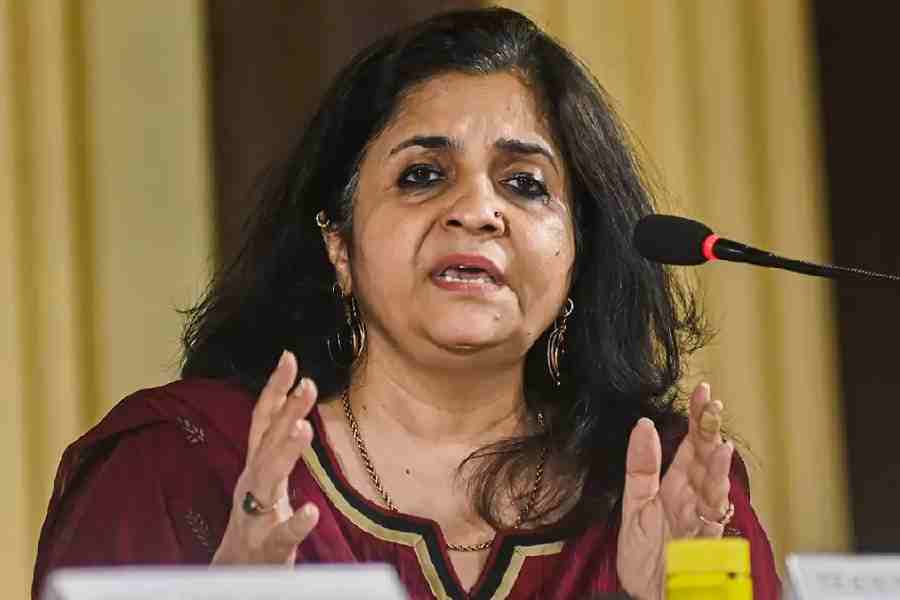Faculty at the Indian Institute of Science (IISc), Bangalore, on Wednesday had to intervene to facilitate a talk by civil rights activist Teesta Setalvad after what they said was an attempt by the institute’s security to block her entry.
Her talk, titled “communal harmony and justice” and organised by a students’ group at the IISc, was “disallowed”, only hours before she was scheduled to speak at 5pm, a faculty member said.
Security personnel at the institute’s gates initially denied Setalvad entry until faculty members insisted that she should be allowed in, the faculty member said.
Setalvad spoke not in an auditorium as planned but outside a canteen on the campus. “There was an attempt to block this event — although the students’ group had sought permission for the talk several days ago,” a faculty member who attended the talk told The Telegraph. “We noticed that many people from outside IISc were denied entry for the talk.”
About 40 students and four faculty members participated in the talk that started around 5.45pm and the discussions that went on up to about 8pm, said a faculty member who requested not to be named. “Some of the ideas that came up were how patterns of riots have changed, how harmony and scientific temper and rationality pose a ‘threat’ to some, and how social media is being used to propagate hate,” the person said.
“The discussions were engaging — our Constitution grants us the right to freedom of speech and expression,” said Parthanil Roy, a mathematician from another institute who was among those who participated. “Academic institutions shouldn’t be trying to stifle discussions.”
The students’ group, called Break the Silence, had approached the IISc administration seeking permission for the talk several days ago but did not receive any reply.
But one of the students was called in on Wednesday and informed that the talk could not be held in the location they had sought permission for, the faculty member who spoke on condition of anonymity said.
The IISc’s response could not be ascertained because of the late hour.
Last month, over 500 scientists and academics had asked the IISc to ensure its students and faculty remain free to express and discuss a range of ideas about science and society, after the institute had cancelled a discussion on the criminal justice system.
The open letter intended for the IISc administration was the latest expression of concern from sections of the academic community in India about what some view as a campaign to suppress open discussions and the right to raise questions about controversial issues.
The Centre-funded IISc had cancelled a planned June 28 discussion on the criminal-justice system by Natasha Narwal and Devangana Kalita, student activists who had participated in the movement against the Citizenship Amendment Act 2019.
The discussion planned for June 28 at the IISc Centre for Continuing Education (CCE) had been approved by the CCE’s chair. But the IISc’s registrar on June 27 cancelled permission for the event and sent a security team to disperse an informal gathering that the student-organisers had arranged to replace the event. The security team backtracked only after the IISc faculty intervened.
In February, over 500 academics and scientists had decried the Centre’s efforts to block a BBC documentary on Prime Minister Narendra Modi, asserting that the curbs violated Indians’ right to access and discuss important information about society and government.












